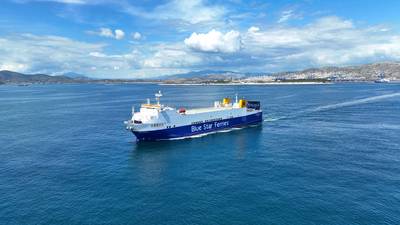Ferry Owners Face 'Double Taxation' from EU, Interferry Warns
Interferry called on the European Commission to immediately harmonize its unilateral EU ETS / FuelEU Maritime regulations with the recently agreed IMO Net-Zero Framework, warning that failure to align Greenhouse Gas regulations will lead to double payment for emissions.
"We cannot have a situation where operators are paying twice for the same emissions. The European Commission pledged to align its rules once a strong global framework was established at the IMO," said Johan Roos, Director of Regulatory Affairs at Interferry. "That framework is now in place. It's time for the European Commission to deliver on its promise, ensure regulatory consistency, and protect the vital role ferries play in Europe's economy and connectivity."
Europe’s ferry industry is vital, with over half the world’s gross RoRo passenger ship tonnage operating in European waters, transporting up to 800 million passengers and 200 million vehicles and freight units annually.
The agreement on an IMO Net-Zero framework reached in April 2025 establishes a Global Fuel Standard (GFS) requiring ships to progressively reduce their annual Greenhouse Gas Fuel Intensity (GFI), and a need to acquire "Remedial Units" if ships exceed set targets. Conversely, FuelEU Maritime, already in force, sets its own maximum limits for annual average GHG fuel intensity and is complemented by the EU Emissions Trading System (ETS). Both mechanisms aim to stimulate the market for cleaner alternatives, but the divergence in performance requirements, carbon pricing mechanisms, and compliance methodologies between the two schemes creates significant challenges for operators.

















